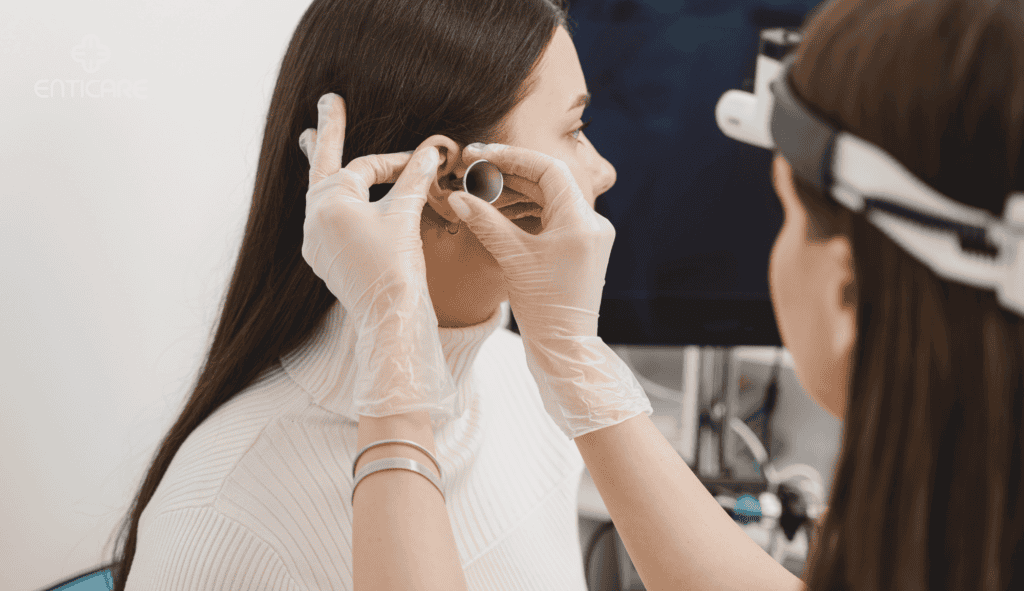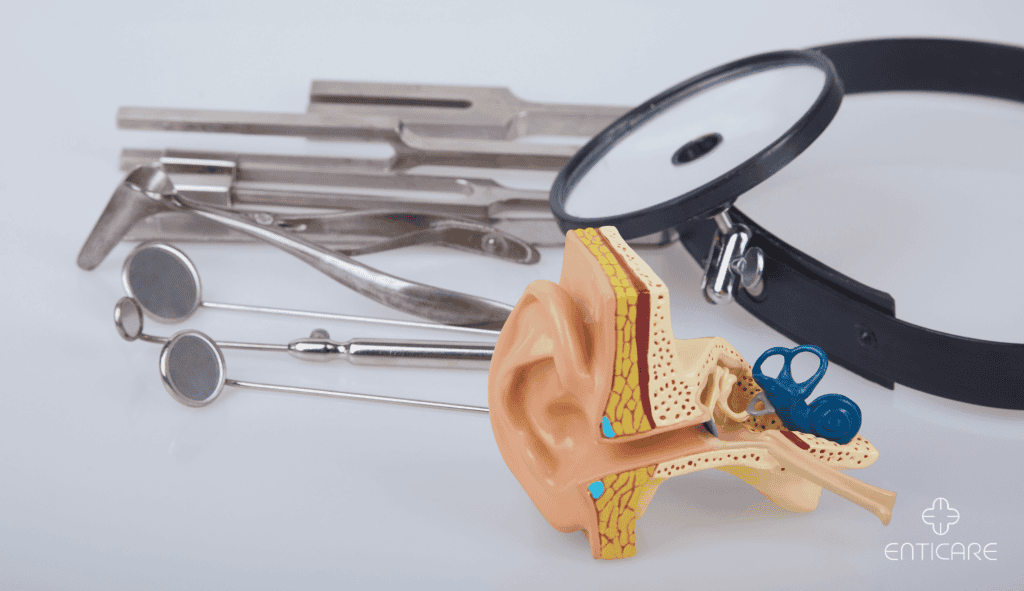If you’re dealing with ear, nose, or throat issues, you might come across two terms: ENT and otolaryngology. Both describe medical specialties focused on similar areas, but are they really the same? Let’s dive into the details to clarify the relationship between ENT and otolaryngology, their functions, and how they serve patients.
What Do ENT and Otolaryngology Mean?
To understand whether ENT and otolaryngology are the same, it’s important to break down what each term represents and where they overlap.
ENT: A Commonly Used Term
The term ENT stands for Ear, Nose, and Throat. It describes the medical field that addresses conditions related to these organs, including sinus problems, hearing loss, and tonsil issues. People often refer to an “ENT specialist” when they seek treatment for ear infections, allergies, or throat conditions. ENT serves as the more patient-friendly, accessible term used in daily conversation.
Otolaryngology: The Medical Specialty
Otolaryngology is the official medical specialty name for the field focusing on the ear, nose, and throat. Otolaryngologists, also known as neck surgeons, undergo extensive training and specialization to handle complex conditions affecting the head and neck. The word combines Greek terms: “oto” (ear), “rhino” (nose), and “laryngo” (throat). Otolaryngologists undergo extensive training beyond medical school to specialize in diagnosing and treating a wide range of conditions affecting these areas, along with the head and neck.
Are They the Same?
In short, ENT and otolaryngology describe the same specialty. ENT is the layperson’s term, while otolaryngology is the professional designation. Both refer to the same scope of practice and expertise.
The Scope of Otolaryngology and ENT Practice
Otolaryngologists manage a broad range of conditions. Their expertise covers far more than just ear infections or sinus issues. Here’s a deeper look at what ENT specialists treat.
Ear-Related Disorders
Otolaryngologists address various ear conditions, from common ear infections to more complex issues like hearing loss and balance disorders. Their work includes:
- Hearing Loss Treatment: ENT doctors diagnose and treat hearing impairments with solutions like hearing aids and surgical interventions.
- Ear Infections: They manage acute and chronic ear infections, including those affecting the middle ear, providing both medical and surgical solutions.
- Tinnitus Management: Otolaryngologists help patients deal with persistent ringing in the ears by offering strategies and treatments.
Nose and Sinus Conditions
Nasal issues can range from allergies to structural problems that affect breathing and sleep quality. Sinus surgery is a treatment option for chronic sinusitis and other nasal obstructions. ENT specialists treat:
- Chronic Sinusitis: Otolaryngologists offer both medication and surgical procedures for individuals with persistent sinus infections.
- Allergic Rhinitis: They manage seasonal and year-round allergies that lead to congestion, sneezing, and discomfort.
- Deviated Septum Surgery: Otolaryngologists perform surgical corrections for nasal obstructions that impede normal breathing.
Throat and Voice Disorders
ENT specialists manage a wide array of throat issues, from swallowing difficulties to voice problems:
- Tonsillitis and Sore Throat: Chronic tonsillitis often requires evaluation by an otolaryngologist for possible surgical removal.
- Voice Disorders: They diagnose and treat hoarseness, vocal cord lesions, and other voice-related issues.
- Swallowing Problems: Otolaryngologists assess and treat conditions like dysphagia, which can severely impact a person’s quality of life.

Advanced Areas of Otolaryngology Expertise
Otolaryngologists also specialize in head and neck surgery, making them experts beyond just the ear, nose, and throat. They handle complex medical issues that require significant surgical skill and medical knowledge.
Head and Neck Surgery
Otolaryngologists manage cancers and tumors affecting the head and neck, including serious diseases like head and neck cancer and neck cancer. Their expertise includes:
- Thyroid and Parathyroid Surgery: They perform procedures to treat thyroid nodules, goiters, and cancers.
- Salivary Gland Disorders: ENT specialists diagnose and treat issues like salivary stones and gland infections.
- Facial Trauma and Reconstruction: Otolaryngologists perform surgery to repair facial injuries, correcting both functional and cosmetic concerns.
Sleep Medicine and Surgery
Otolaryngologists often deal with sleep-related disorders like obstructive sleep apnea (OSA). Treatments include:
- Sleep Apnea Surgery: They perform procedures such as uvulopalatopharyngoplasty (UPPP) to open the airway for better breathing during sleep.
- Snoring Treatment: ENT specialists offer non-surgical and surgical options to reduce or eliminate snoring.
Pediatric ENT Care
Otolaryngologists also treat children with specialized care for conditions like:
- Pediatric Ear Infections: Chronic ear infections in children often require ENT evaluation for possible tube placement.
- Tonsil and Adenoid Surgery: Otolaryngologists frequently perform surgeries to remove tonsils and adenoids in children with recurring infections.
- Airway Issues: They diagnose and treat conditions like laryngomalacia and other congenital airway abnormalities.
Education and Training for Otolaryngologists
To fully grasp the distinction between ENT and otolaryngology, understanding the education and training process for these specialists is important. Becoming an otolaryngologist involves:
Medical School and Residency
Otolaryngologists first complete medical school, earning their MD or DO degree. They then enter a rigorous five-year residency focused exclusively on ear, nose, throat, head, and neck disorders.
Fellowship and Subspecialization
Some otolaryngologists pursue additional fellowship training in subspecialties like pediatric ENT, head and neck oncology, or facial plastic surgery. This advanced training, including reconstructive surgery, prepares them for complex surgical procedures and highly specialized care. The extensive training otolaryngologists undergo encompasses both medical and surgical management of diseases and disorders of the head and neck.
Board Certification
After completing residency, otolaryngologists must pass the American Board of Otolaryngology examination to become board-certified. Certification confirms their expertise and commitment to the highest level of care.

Why Knowing the Difference Matters
Understanding that ENT and otolaryngology represent the same specialty can help you choose the right provider when you need care for ear, nose, or throat issues. Here’s why it’s important:
Choosing the Right Specialist
Whether the doctor refers to themselves as an ENT specialist or an otolaryngologist, they possess the same knowledge and skills to diagnose and treat a wide range of conditions.
Comprehensive Care
Because otolaryngologists treat everything from minor ear infections to complex head and neck cancers, you benefit from comprehensive care under one specialty. This broad scope of practice reduces the need for multiple referrals.
Understanding Your Treatment Options
Recognizing that ENT and otolaryngology are interchangeable terms provides clarity when you seek treatment. You’ll know that you’re getting expert care whether the practice describes itself as an ENT clinic or an otolaryngology office.
Seek Specialized ENT Care at Enticare
Now that you understand the relationship between ENT and otolaryngology, you can make more informed decisions about your healthcare. Whether you’re experiencing sinus issues, hearing loss, or throat discomfort, an ENT specialist has the expertise to provide effective treatment. If you need to see an otolaryngologist, schedule an appointment today with Enticare and take the next step toward better ear, nose, and throat health.


